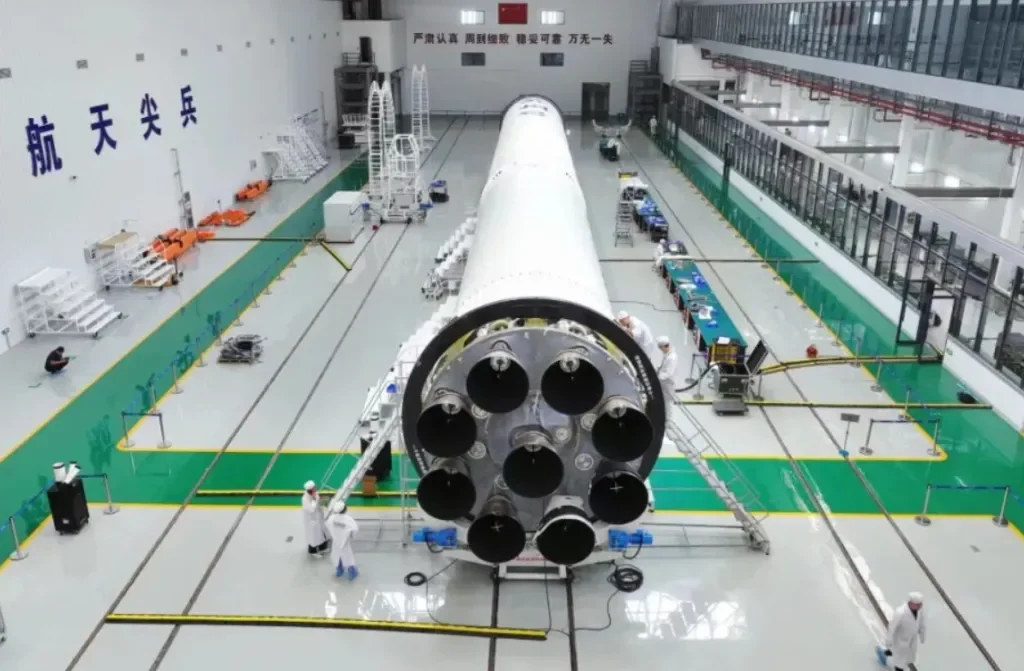Chinese commercial space company Space Pioneer, also known as Beijing Tianbing Technology Co., Ltd, has announced a successful funding round worth more than 1.5 billion yuan ($207 million) on June 6. This investment, termed “C+,” involves at least 15 investors, including private equity and state-linked investment entities.
The funding will primarily support the development and launch contracts for Space Pioneer's reusable Tianlong-3 rocket. This rocket, along with its smaller counterpart Tianlong-2, aims to meet the demands of megaconstellation plans.
Tianlong-3, powered by nine Tianhuo-12 engines, is a two-stage kerosene-liquid oxygen rocket designed for reusability. It stands 71 meters tall with a diameter of 3.8 meters, capable of lifting 17 tons to low Earth orbit (LEO) or 14 tons to a 500-kilometer sun-synchronous orbit. Space Pioneer plans to launch 30 Tianlong-3 rockets annually.
The company is preparing for a static fire test of the Tianlong-3 first stage by the end of June, with the first launch expected in the coming months. If successful, Tianlong-3 will become China's largest commercial rocket, second only to the Long March 5B in terms of LEO capacity.
This latest funding brings Space Pioneer's total fundraising to over four billion yuan ($552 million), making it one of the most well-funded Chinese commercial launch companies. Despite the competitive landscape with more than 10 companies developing commercial launchers, the backing indicates the strong support available for launch companies in China.
The funding also aligns with China's strategic focus on commercial space as an important industry. This includes supporting the growth of satellite internet systems and enhancing China's overall space capabilities. Space Pioneer aims to contribute to China's national satellite internet project, which includes plans for 10,000-plus-satellite constellations.
Space Pioneer's success reflects its leadership among Chinese commercial launch vehicle developers. In April 2023, it became the first Chinese company to reach orbit with a liquid rocket, Tianlong-2. The company's advancements highlight China's efforts to boost its commercial space sector and compete globally in the space industry.
